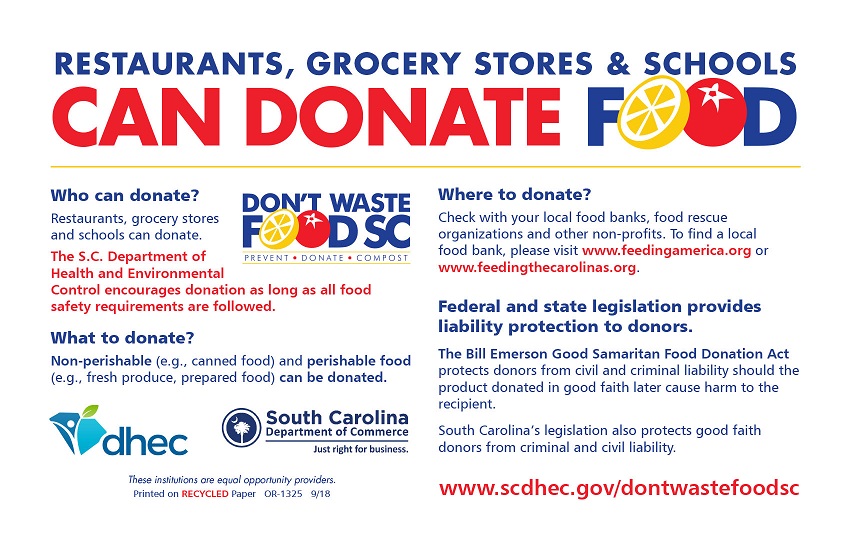Approximately 45 percent of all fruits and vegetables, 35 percent of fish and seafood, 30 percent of cereals, and 20 percent of meat and dairy products are wasted by suppliers, retailers, and consumers every year.
Quick tips to prevent & reduce food waste for food retailers & manufacturers:
- Download DHEC's Smart Businesses Don't Waste Food Guide.
- Conduct a waste audit. Determine what your waste is and how much it's costing your business.
- Partner with local farmers. Meet with a local farmer to plan your produce availability around what is in season.
- Buy smart. Adjustments in purchasing can save money and potential food waste.
- Love ugly fruits & veggies. Stores are not required to purchase only perfect produce. Reduce waste by not discarding those that look different.
- Keep an accurate inventory. Use the FIFO method: first in, first out. Upgrade your inventory system to help manage the process.
- Be creative. Create demonstrations and tastings with overstocked items.
- Donate. Instead of tossing extra produce, canned goods or prepared but unserved food, contact a local food bank or shelter. Feeding the Carolinas Foodbanks
- DHEC supports and encourages donation. Is it legal for retailers and manufacturers to donate? YES!
- Educate your consumers. Make sure your customers know what your store is doing to reduce food waste and encourage them to help.
- Compost. Most businesses will need to contract with a compost hauler/vendor or find a community garden/compost area. Vendor Info
Benefits:
- Potential cost savings.
- Feeding people, not landfills.
- Gives businesses an opportunity to enhance their reputation with guests, staff and investors.
- Employee engagement in the program increases job satisfaction.
Other Resources:
- DHEC's S.C. Smart Business Recycling Program provides free, confidential technical assistance for recycling and food waste reduction.
- DHEC's Retail Food Establishment Regulations
- The Food Waste Reduction Alliance is an industry led initiative focused on reducing food waste by increasing food donation and on that focuses on increasing donation and diverting unavoidable food waste from landfills through productive use (e.g., composting).
- Food Waste Reduction Alliance Took Kit
